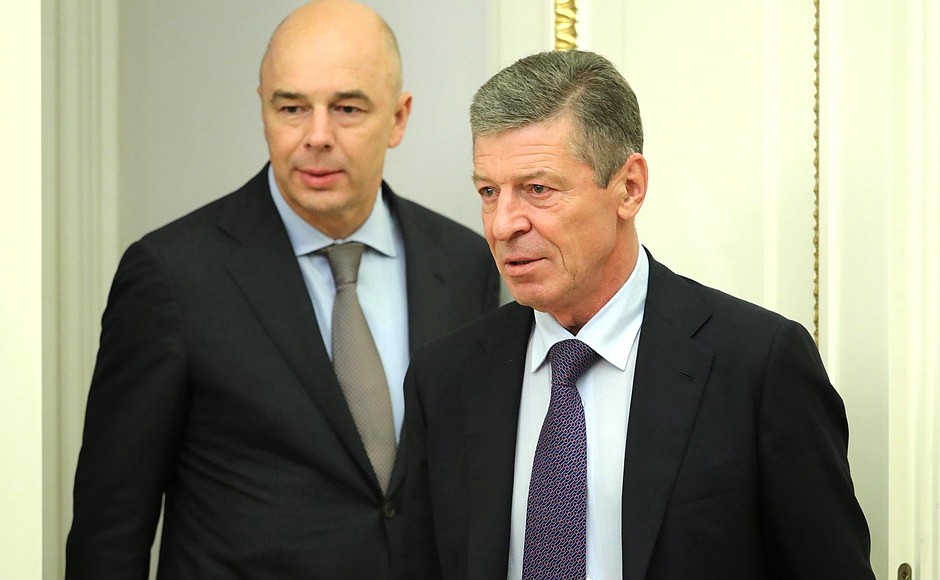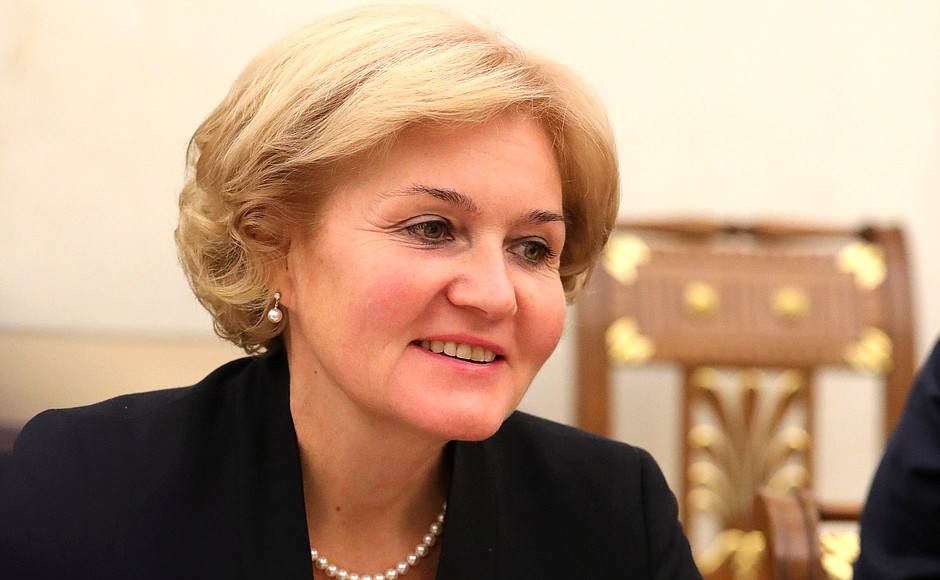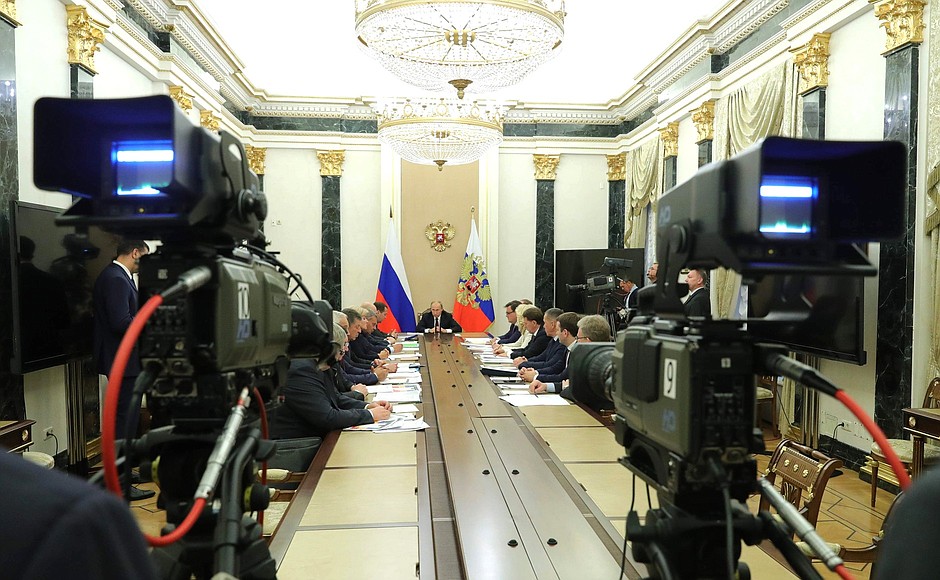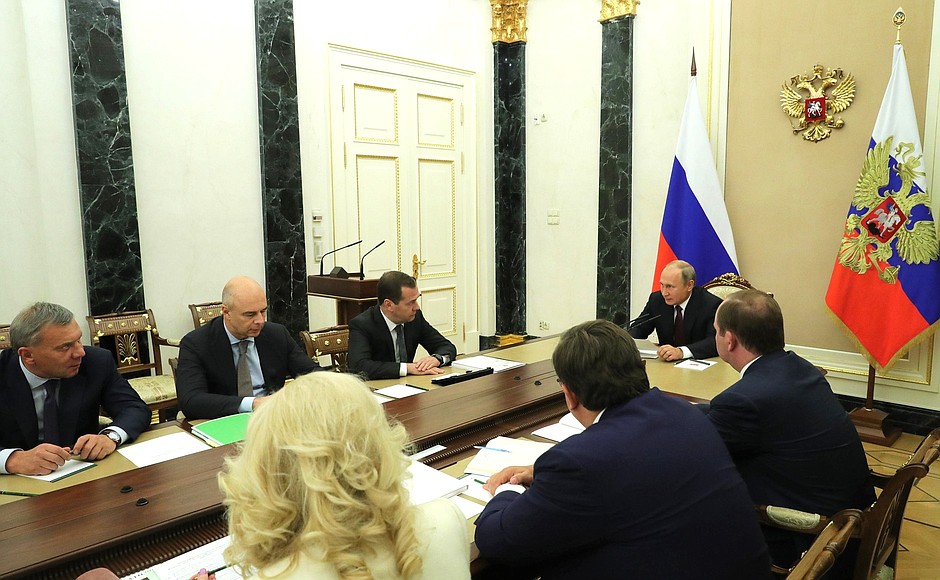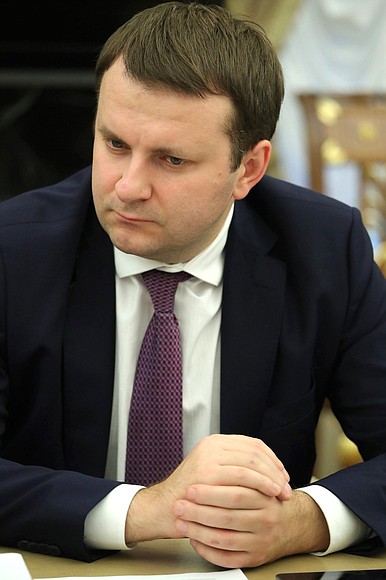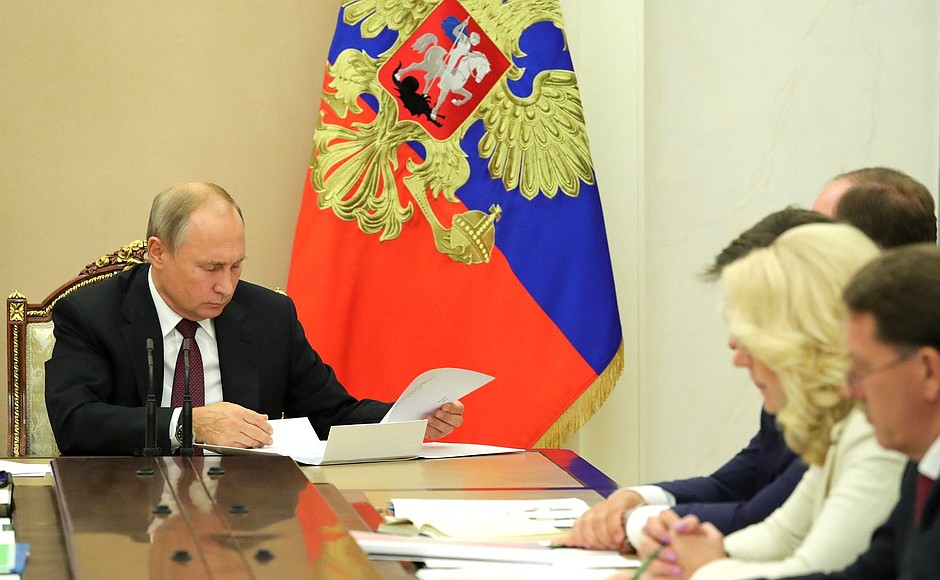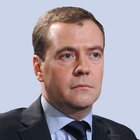President of Russia Vladimir Putin: Good afternoon, colleagues.
Today’s agenda includes some issues, including fundamental ones, that determine the planning of our work for the next few years.
As we agreed, the main areas of activity for the Government of the Russian Federation have been elaborated based on the May Executive Order that set out the national goals and strategic tasks until 2024. I would like Mr Medevev to speak about this after I finish my opening remarks.
National projects and programmes on key areas of the country’s development have also been drafted.
I would like to emphasise the need to reach the goals set forth in the Executive Order, to achieve the targets in the economy, healthcare, education, culture and infrastructure, and to make fundamental changes in all areas that determine the welfare and quality of life and Russia’s sustainable development.
We must use our competitive edge to the utmost and create all conditions for the self-fulfillment of citizens and the implementation of their initiatives.
And, of course, we must carefully calculate our resources. We spent much time on this. Over the past two years, we have been making these calculations practically all the time. Of course, I am referring primarily to our financial potential.
Mr Medvedev, you have the floor, please.
Prime Minister Dmitry Medvedev: Mr President, colleagues,
As you have just mentioned, pursuant to your May Executive Order, we have prepared Guidelines for the Government. This work began immediately after the new Government was formed, and involved all ministries and departments, as well as our colleagues from the regions.
Indeed, we are talking about decisions that are critical for our country that will affect the lives of millions of people. We believe we managed to draft a realistic – from the perspective of the current situation – and at the same time a reasonably ambitious action plan.
Last week, we reviewed the draft plan at a Government meeting once again. It was approved, as you instructed, before October 1.
First of all, as we worked on the plan and the Guidelines, we focused on the national development goals outlined in your Executive Order and the need to implement 12 national projects. Their descriptions have already been submitted to the Presidential Council for Strategic Development and National Projects, led by you, Mr President, and were reviewed by the Council Presidium, which I moderate.
At the same time, there is an idea to formulate an additional number of national projects. Perhaps this needs to be discussed separately; there are reasonable arguments to do so, but this will, of course, require further critical evaluation.
We will focus on the Guidelines and the national projects in the near future, as they are, indeed, the mechanisms and tools that we need to achieve national goals.
According to the draft federal budget, national projects and infrastructure development will receive 5.63 trillion rubles over the next three years. The Government has already sent the draft to the State Duma. This is a very substantial amount of money.
As you mentioned, developing the social sphere and improving the quality of life is the most significant spending item. Primarily, these are projects in demographics, education, healthcare, science, the environment, culture, housing and a comfortable urban environment, as well as the creation of a modern transport and energy infrastructure, including motorways. Considerable investment will go into all of the above areas.
I would also like to note that 845 billion rubles are being channeled into developing the digital economy, supporting small and medium-size business and expanding non-energy exports. Maybe Mr Siluanov will also say a few words about this, in terms of the budget.
As the Executive Order reads, the social area is a top priority for the Government. All we are planning for the next few years in the development of the economy, support of small businesses and infrastructure is primarily done to make people, citizens of our country feel real changes for the better in incomes, quality of housing and roads and let them take their child to a kindergarten or a sports club without much fuss.
There are specific areas there that concern all items – the demography package and measures to reduce the mortality rate and develop medical services, including primary medical care, medical stations and mobile medical complexes.
As you know, we are planning to raise to a new level our efforts to fight oncological diseases, which is also stated in your Executive Order, primarily through the early detection of the disease.
Issues of overcoming poverty and raising incomes are a separate area. I am referring to the adjustment of social payments and different forms of support for low-income families.
One of the main tasks set forth by the Executive Order is to make sure pensions grow above inflation. All money coming from decisions pertaining to pension legislation will be used for this purpose. In addition, we are laying emphasis on active longevity programmes and protection of pre-pension age employees.
Our projects also deal with support for housing construction, relocating from dilapidated housing, upgrading management of residential buildings, developing the transport network and improving the environment.
As for the economy, the main Guidelines naturally provide for encouraging investment activities with an emphasis on private investment, boosting competition and creating favourable conditions for business, including the expansion of digital technology use, as was already mentioned, and the creation of the infrastructure for its advance.
Of course, special attention should be paid to upgrading state administration.
The industrial policy will focus on developing basic industries, increasing the share of high-tech industries, including by reorienting them to civilian production, expanding cooperation with the country’s leading research centres and supporting Russian companies that are exploring international markets.
This concerns not only industrial policy, but agriculture as well, because the policy of developing the export potential of agriculture is also outlined in your Executive Order and the Guidelines for the Government.
The solution to these and many other issues outlined in the Guidelines depends on what the regions will think about the federal initiatives. We plan to allocate significant amounts to support them as well: the volume of subsidies will amount to almost 1.5 trillion rubles next year alone. This will create the proper environment for the sustainable development of the regions, but they should, of course, rely on their own development sources, because they need to take care of their own revenue base, which is obvious.
In some cases, we will use special incentives in our plans to develop individual territories and federal districts that need special attention. I am referring, of course, to the Russian Far East, the Caucasus region, Crimea, Kaliningrad and Russia’s Arctic zone.
Benchmarks, key tools, mechanisms and targets to be achieved by 2024 were defined for each area. Each national target has an implementation model that must be tied in with other areas of the Government’s activities.
Of course, the choice of assessment criteria to be used by the leadership matters. The Government must control all these areas. We will evaluate our progress on each national target, and report to the President about the effectiveness of budget spending. If need be (these Guidelines are, as was once said, not a dogma, but a guide to action), we will come up with additional solutions for your consideration, Mr President.
Shortly, we plan to sum up some of the current developments. We will review the solutions that are already being implemented just to see how these mechanisms work and what might have to be changed.
I am sure that all the Government members are fully aware of their responsibility and will do their best to achieve the outlined goals.
Vladimir Putin: Colleagues, we are facing very complicated, large-scale challenges. We are well aware of it, we know it. To solve them conditions must be created for economic development and for attracting investment, and the funding sources and levels to address the most urgent issues have to be determined carefully. It is impossible to do so without effective budget planning and strict observance of financial discipline in the course of implementing our strategic plans.
Therefore, I ask you with your colleagues in the parliament of the Russian Federation to make a detailed analysis of the priorities and specific funding levels in the budget, and to cross-reference that information with the benchmarks set in the national projects.
Mr Medvedev has already referred to the areas of focus. For example, fighting various types of cancer requires priority attention in healthcare, as we have discussed a number of times. All the scheduled activities in this vital sphere must be carried out consistently and professionally both from a financial and practical standpoint, in keeping with the very specific decisions that need to be taken here: how much should be allocated to which areas, in what amounts, at what rate. No mishaps can be permitted, especially since the funds we are allocating are quite substantial. From the submitted documents, I see that 470.6 billion rubles are earmarked from the federal budget to fight cancer in 2019–2021. These are significant resources, they must be properly handled.
The funding of infrastructure development projects should also be closely monitored. Investments in modern roads and railways, airports, expanding the capacity of strategic transport corridors – this is definitely a major factor in economic growth, a crucial condition for balanced territorial development and for increasing the quality of life of our citizens.
Special focus should also go to developing social infrastructure as well as resolving the backlog of environmental problems including, of course, the elimination of dumping sites across the country.
Housing construction also requires constant monitoring, of course. This also concerns resettling people from dilapidated housing. Let me remind you that in the past six years 677,000 people were given new housing and were relocated from over 10 million square metres of dilapidated housing. These numbers are not insignificant, but the task has not been completed.
Every year about two million square metres of housing is classified as dilapidated. The total amount in the country is over 13 million square metres. We have relocated people from 10 million, and have another 13 million to go. But the key is not to let that number grow, as I said a number of times, and major repairs and current maintenance should be done on time.
We have to set up an effective continuous mechanism for resolving this problem, while also ensuring that citizens’ housing rights are protected. We spoke a lot about that, we spoke about protecting the interests of the people who lost out during the construction of their housing – they invested their money but they have neither money nor housing. The issue is very urgent and must be resolved shortly.
In this connection, I would like to hear from the Finance Minister. Please, go ahead, Mr Siluanov.
First Deputy Prime Minister and Finance Minister Anton Siluanov: Thank you, Mr President.
The Government of the Russian Federation has prepared and submitted to the State Duma a draft budget for the next three years. This draft has some innovations and special features.
To begin with, we have adopted new tax legislation specifically to support the implementation of the new tasks that you set forth in your May Executive Order, while also promoting economic development.
What are these decisions? We have cancelled a tax on movables, the so-called modernisation tax.
Secondly, we have planned additional tax rules starting next year, such as a tax on additional income in the oil sector that will provide greater impetus for the development of deposits.
We are also introducing a new tax for self-employed people that will allow them to work legally and pay taxes to the state. This is also an innovation for small businesses.
Tax rules will be codified in the next six years and will not be changed.
What budget parameters have we considered? We will have a budget surplus in the next three years. In 2019, the surplus will amount to 1.8 percent of the GDP. Why do we need this? Primarily to have predictable and stable macro-economic conditions and to be able to fulfil our commitments regardless of external factors, such as a change in oil prices or the foreign sanctions that we are now facing. This will also give additional support to boosting economic growth rates.
The project approach was used for a considerable share of the resources in the budget, which is a special feature of this budget. These are national projects. Some eight trillion rubles have been allocated in the budget for these purposes for the next six years. Considering that part of the excises on petroleum products will be transferred to the regions of the Russian Federation, this sum will increase to nine trillion rubles.
Total funds allocated for national projects during the next six years will amount to 14 trillion rubles. As Mr Medvedev said, we will allocate 5.6 trillion rubles for implementing national projects in the next three years. The budget accounts for both the implementation of national projects and the development goals set forth in the May Executive Order. This is above all the task of ensuring high economic growth rates, increasing these rates and, certainly, improving the welfare of our citizens, the growth of wages and pensions.
Speaking about the task of accelerating economic growth, 2.3 trillion rubles will be allocated for the purpose within three years from the national projects alone. This includes about 400 billion rubles allocated for the Digital Economy project, 272 billion rubles to support exports, 136 billion rubles for small and medium-sized businesses, and labour productivity. Besides, a considerable sum of 1.4 trillion rubles will be allocated for road construction and infrastructure over the three years. These projects include the West-East and North-South transport corridors, enhancing the economic connectedness of the territories of the Russian Federation, and providing affordable power to a number of our regions.
Vladimir Putin: What will that amount to?
Anton Siluanov: 1.4 trillion rubles in the three years alone.
A Development Fund is being set up to support development goals. The total assets of the fund amount to 3.5 trillion rubles within the six-year period. This is the money that will go to implement both infrastructure projects related to economic development, and to investments, as we say, in human capital. The resources will come from borrowing more on the market.
The social sphere. A number of national projects have been designed, as Mr Medvedev has already said. I will give you some numbers.
Demographics and healthcare. In the coming three years a total of 2.2 trillion rubles of additional funds, all funds, will be allocated to this end. We already have a number of social programmes underway such as maternity capital – funds are earmarked for indexing amounts in 2020, childbirth payments, payments to families with children, mortgage benefits, creating more spaces in kindergartens. These are the programmes that are already being implemented but there are some new ones as well. They include disease prevention, opportunities for doing sport, and treatment of cardiovascular and oncological diseases. A programme to upgrade oncology centres will be launched, as you mentioned, Mr President, and new modern clinical recommendations and new treatment protocols will be introduced.
Also, funds are earmarked for resolving environmental problems under the national projects. These include the elimination of dumping sites, purification of water reservoirs, and reduction of atmospheric pollution. 241 billion rubles have been set aside for these objectives in the coming three years.
Education. We have been set the task of making Russia one of the top five leading nations in science and technology. We have a corresponding national project, with 350 billion rubles set aside for the three years. The funding goes toward early child development, supporting talented youth, and introducing new methods of teaching and educating.
Housing construction is also an important goal, as you just said, Mr President. We have a national project for it. The goal is to improve housing conditions for at least five million families by 2024. To reach these objectives, 106 billion rubles have been set aside plus another 19 billion from regional budgets.
National projects cannot be implemented without making use of the opportunities offered by the constituent entities of the Russian Federation. Apart from financial assistance that we usually provide to the regions, we are also committed to supporting them in achieving objectives that fall within their own competence by having the federal government co-finance their initiatives to the maximum extent. In most cases, the Russian Federation provides 95 percent of funds, while the regions undertake to provide 5 percent.
We will also continue to support regions in fulfilling their priority obligations, such as paying salaries and social benefits. All these support mechanisms will remain in place.
Of course, monitoring the implementation of national projects is essential. A new online system is currently being put in place in order to monitor online the advancement of national projects at all stages, from their development and until they are completed. This system is expected to enable us to identify projects that are falling behind or are ahead of schedule so as to be able to manage them and ensure that all the objectives included in the May 2018 Executive Order are fulfilled.
Thank you.
Vladimir Putin: Mr Siluanov, you have mentioned an investment of 1.4 trillion rubles in infrastructure. As far as I can see, this includes 1.075 trillion rubles for primary roads, and the remaining funds in the amount of 371.4 billion rubles will go towards the national project Safe and Quality Roads.
Are these 370 billion intended for federal roads only?
Anton Siluanov: The Comprehensive Plan to upgrade and expand primary roads focuses on improving connectivity among regions, which means that it deals with federal roads. At the same time, Russian regions are expected to contribute to the Safe and Quality Roads project, which means that we will work on it together with the regions.
Vladimir Putin: What is the situation with the regional road funds and the additional funds generated by excise duties?
Anton Siluanov: Mr President, as we agreed in keeping with your instructions, by 2024 we will complete the reallocation of excise duties on petroleum products that are currently paid to the federal road funds. This will be a gradual effort beginning in 2020, so that by 2024 all excise duties on petroleum products are paid to the regional road funds.
Vladimir Putin: There is another sensitive issue. When planning the pension reform, the Government proceeded from the premise that there will be a positive financial outcome of these measures within several years but when the presidential amendments were adopted it became clear that there will not be any revenue from the pension system changes. On the contrary, the Government will have to finance the amendments proposed by the President. What is the scope of this funding?
Anton Siluanov: It is true, we do not expect any additional revenue from the pension law changes and, on the contrary, we will even increase financial transfers to the Pension Fund. Within the first several years, we will transfer an additional 100 billion rubles to the Pension Fund in order to solve the problems to ensure higher adjustment for inflation of retirement pensions.
Vladimir Putin: And to carry out the amendments passed by the Parliament?
Anton Siluanov: The amendments made during discussion of the draft law on pension reform in the State Duma will require over 500 billion rubles in additional funding.
Vladimir Putin: This is what I am talking about. Is this money available in the budget? Did you determine the sources?
Anton Siluanov: Absolutely. This money was taken into account in the amount that the Government still transfers from the federal budget to the Pension Fund.
Vladimir Putin: Good, thank you.
Ms Golikova, please tell us a little bit about WorldSkills.
Deputy Prime Minister Tatyana Golikova: Mr President, Mr Prime Minister, colleagues,
The Russian team has just returned from the EuroSkills championship in Budapest. Our competitors, 48 people from 17 regions, took part in this European skills and trade competition.
I must say that they competed with 600 participants from 28 countries in 41 skills. Their results were brilliant. They won nine golds, eight silvers, two bronzes and ten medallions of excellence. These kids (they are not really kids anymore, all aged 17 to 25) had prepared diligently for this event. I think we can all congratulate them once again on their results.
In 2019 Kazan will host WorldSkills dedicated to vocational skills. We summed up the results in August: 64 countries have registered to take part in this event; there will be 56 skills and over 1,500 participants.
We are now making preparations for this event – its organisation and hosting. In addition to the main programme of competitions WorldSkills Russia has initiated an experimental project called FutureSkills which will demonstrate the modern environment and potential of the Russian economy through the prospective of future professions.
There will also be a programme dealing with the field of business. It will focus on the development and adoption of joint decisions in the sphere of training personnel for the new economy – an economic summit dedicated to skills of the future.
I would like to continue the subject that Mr Medvedev and Mr Siluanov were talking about: naturally, the Education project is one of those that we are carrying out. There is a section called The Young Professionals which takes into account the work within the WorldSkills standards and within the experience and qualifications that we already have and will acquire in future.
Over a period of the next six years 146 billion rubles will be spent on The Young Professionals programme that is mainly devoted to secondary vocational education.
I would like to quote some figures. By 2024 a network of one hundred priority vocational training centres will have been developed together with at least 5,000 workshops equipped in accordance with modern needs and up to the standards required by WorldSkills. In addition to this, at least 35,000 teachers and vocational training masters will attend courses to upgrade their skills and 10,000 of them will be simultaneously certified as WorldSkills experts.
Vladimir Putin: Thank you.
I saw how overjoyed our winners are. I would sincerely like to congratulate all of them on their victory and I would also like to thank everyone who helped to organise this work.
Mr Medvedev, I would also like to thank the Government for preparing the main guidelines for its activities up until the year 2024 because they are really becoming a roadmap for implementing the Presidential Executive Order of May 7, 2018 in which we set the national targets as well as strategic objectives for the development of the Russian Federation until 2024. I assume the Government will strictly keep to this plan.
Thank you.
<…>
